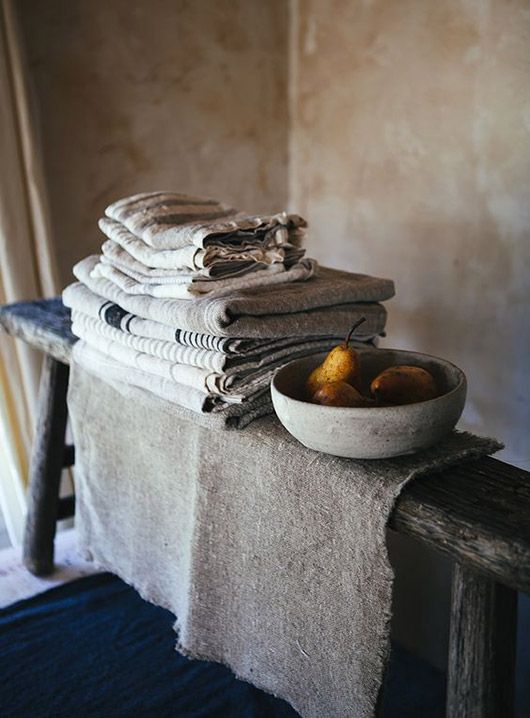Embracing Imperfection
Wabi-sabi is an ancient Japanese philosophy that basically means embracing imperfection. It’s about releasing yourself from the pursuit of perfection; be that in relationships, possessions or life in general. It’s about simplicity in all things. It’s also become a term to describe a style of interior decoration. In my day it used be called ‘rustic’ but apparently we’re calling it wabi-sabi now.
I actually hate the fact it’s called this because to have a wabi-sabi home will ironically cost you a small fortune, which feels like the opposite of the wabi-sabi philosophy to me.
However regardless of the name, it is a style that is very much me. It reflects my approach to jewellery: to look battered, worn, loved, used and imperfect. I’m drawn to raw natural materials like linen, old worn wood and chipped concrete.
I was recently disproportionately excited to discover that B&Q sell old used burlap sand bags for 50p each. I snaffled a few of these bad boys just because I loved the texture. I am currently searching for an old milking stool to use as a side-table and one of the sacks will end up draped over the stool.
I live in a modest flat in Glasgow so it’s not that easy to create this look in my own home, but there are certainly elements of it I have implemented myself. In my opinion, making things ourselves or the re-purposing of old items is in many ways true wabi-sabi. In Japanese tea ceremonies the cup used is so old it’s become chipped and worn and this is the essence of wabi-sabi: they don’t go out and buy a new one.
So to me re-purposing existing old things reflects this better than spending fortunes on items designed to look worn. That said, the ceramic pots and bowls created in this style call out to me in unnatural ways! But I will be scouring charity shops to find pottery that I can paint myself to give it new life and recreate the look.







